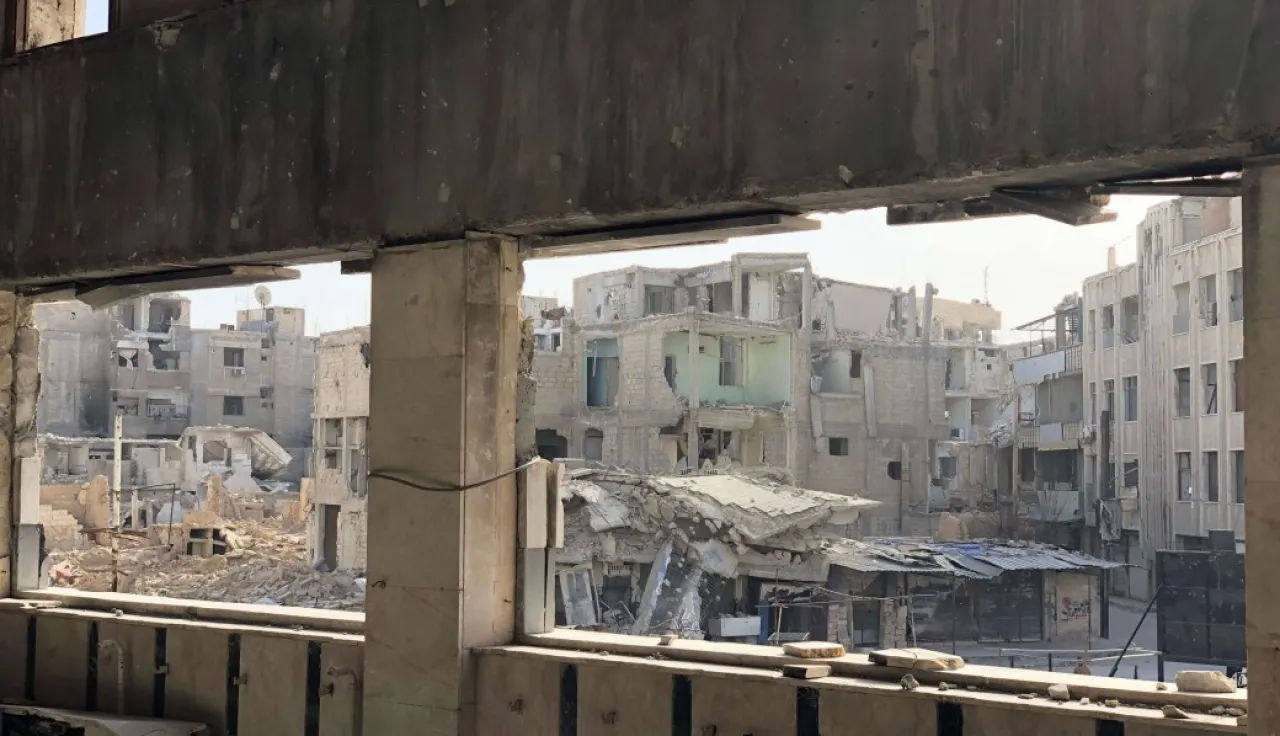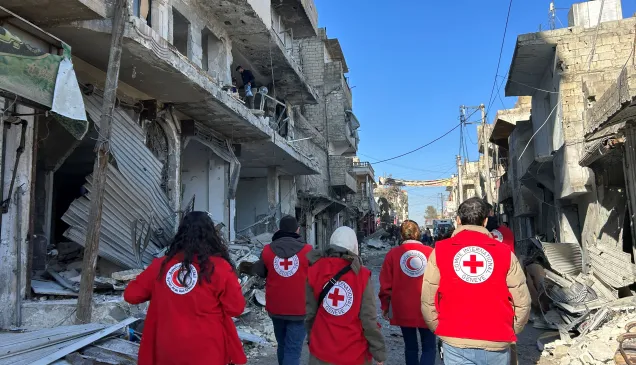"Humanitarians can put a bandage on the patient. But it's only States who can cure that patient"
ICRC Director of Operations, Dominik Stillhart's address to the 2018 second Brussels conference on Syria:
Excellencies, ladies and gentlemen,
Thank you for giving the International Committee of the Red Cross, and myself, the opportunity to address you today.
As you know, the ICRC has been on the ground since the beginning of the conflict, witnessing the collapse of a country, witnessing the destruction of so many lives.
I'm not going to recite here, once again, the facts, the figures, the tragic stories. I think we're all aware of them.
Suffice it to say, the people are weary. The people are tired of a war without end. A war with, apparently, no limits.
Make no mistake, this is a complex conflict, involving multiple States, armed groups; militia and self-defence forces; proxies and advisers.
The result is a diffusion of responsibility which has left the line between truth and falsehood blurred beyond recognition.
It's important that States - and others - use their influence to urgently alleviate the situation.
In concrete terms, this means that States supporting parties to the conflict in Syria must:
- Clarify responsibilities. Who is responsible for what, and for whom? Ambiguity increases the risk of IHL violations.
- Second. Improve accountability. States should implement clear procedures to collect allegations of violations, and then, investigate them.
- Third. Add safeguards to arms transfers to parties which are involved in committing violations of IHL.
These are just three of the ten recommendations that the ICRC has shared with parties to the conflict and States of influence.
Put simply, there should be no support to warring sides if they don't respect the laws of war.
No support without compliance. A simple condition that can save lives.
States supporting parties to the conflict - and states of influence - have a moral and a legal responsibility to protect the vulnerable, the injured, the displaced, and the detained.
Ladies and gentlemen, four and a half hours direct flight time from here, thousands upon thousands of people are living in fear and uncertainty.
People in shelters. People in half-destroyed homes. People in detention centres. People living under the stars.
The life-compass of a generation has been ripped from their hands.
Children are growing up, knowing nothing but fear and uncertainty, bomb and bullet.
Civilians in Syria have become the primary object of attack, rather than the primary object of protection.
Can we - and can States - stand on the moral high ground, guilt-free and content?
No. We all bear responsibility. In our own ways, in our own positions.
Humanitarians can put a bandage on the patient. But it's only States who can cure that patient.
Ladies and gentlemen,
This war is not over. The suffering continues. If anything, it has increased in recent months.
Morality and civilisation demand action.
So what am I asking for?
Provide protection for the vulnerable
Take International Humanitarian Law more seriously. We need actions, not just words. Remember, no support without compliance.
Have the courage to find a political solution which will give the hope that all Syrians want, and need.
Thank you.
For further information, please contact:
Ralph El Hage, ICRC Amman, tel: +962 7 7845 4382
David-Pierre Marquet, ICRC Brussels, tel: +32 472 54 79 12
Iolanda Jaquemet, ICRC Geneva, tel: +41 79 447 37 26
More on the ICRC position on the issue of returns to Syria:




